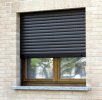Trevrizent on Today at 12:06:30 PM said:Laura said:… Best to not eat a carb meal before bed... the egg was fine, but leave off the beans and potatoes.
Following on from the above, and, regarding the timing of eating carbohydrates and proteins.
Quote from: Sidney Baker with Karen Barr in The Circadian Prescription
Carbohydrates Provide Energy for Your Body’s Nighttime Tasks
Except that Wiley in "Lights Out" is totally down on carbs in the evening. So there is a conflict of advice here. I think her's is based on evolutionary biology and he is not taking that into account. The issue is the balance between insulin and other hormones during the night and when the insulin is up, the other hormones can't do their jobs.
Valid points, I don’t recall the passage re totally down on carbs in the evening – then your reading is more recent than mine. :)
Wiley does state:
Only eat as many carbohydrates as you need in a day, in season. … summer is an all-you-can-eat proposition, and winter is no more than 45 grams a day.
By keeping down to this low level (for the day), eating them in the evening may be OK. I don’t know. :)

